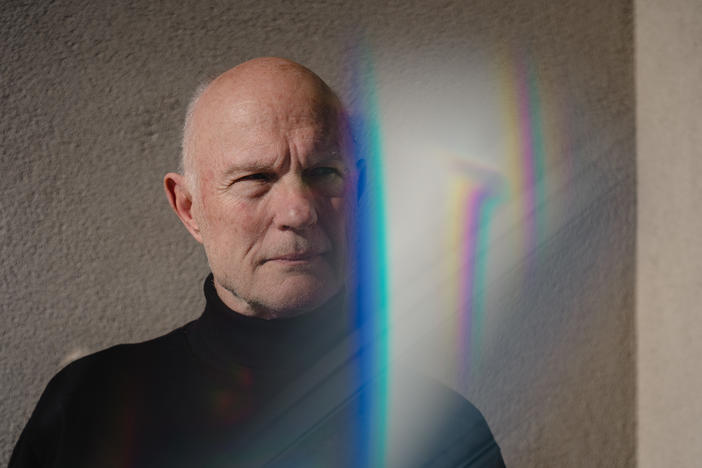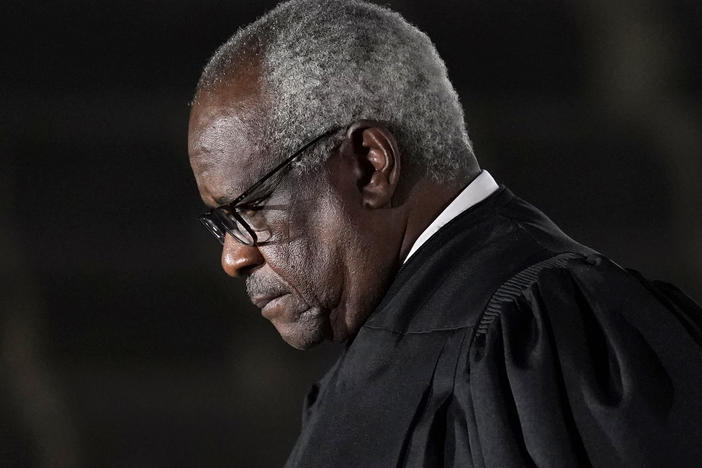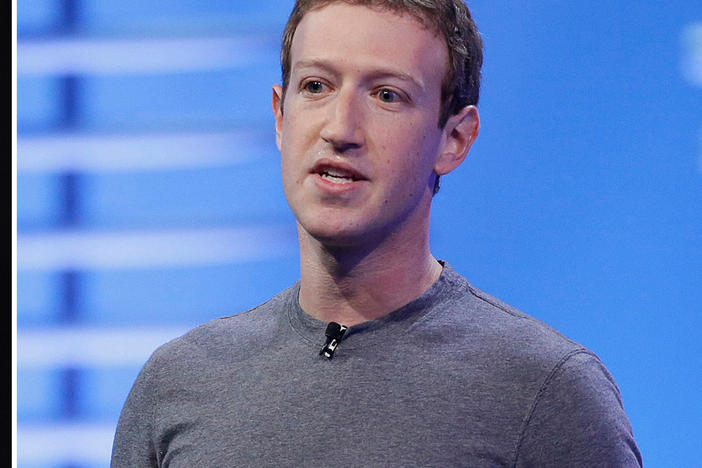Section Branding
Header Content
Google Workers Speak Out About Why They Formed A Union: 'To Protect Ourselves'
Primary Content
More than 600 Google workers have joined a union in a move that is a rarity in Silicon Valley. The group says it hopes to change both workplace culture and the company's role in society.
Transcript
NOEL KING, HOST:
Hundreds of Google employees did something this week that is rare in Silicon Valley. They formed a labor union. Some of them talked to NPR's Bobby Allyn about why. And I should note, Google is a financial supporter of NPR.
BOBBY ALLYN, BYLINE: After the death of George Floyd, Google engineer Raksha Muthukumar sent an email to colleagues. It included a list of criminal justice reform groups and bail funds for protesters. Soon after, Muthukumar was summoned into a meeting with Google's HR department.
RAKSHA MUTHUKUMAR: And I remember that was, like, such a scary experience. It was such a mysterious HR letter. And I was, like, texting friends who had been involved in organizing. And they were like, oh, this is my experience with HR. This is what's happened. Don't forget to, like, take notes on it.
ALLYN: She was told that a colleague was offended by her email. One of the fundraisers had used harsh language to describe police. But she wasn't expecting it to land on the radar of higher ups.
MUTHUKUMAR: It just seemed like the most neutral thing, sending, like, a little GoFundMe list. And that got me in trouble in some way.
ALLYN: A talking to from HR, being demoted or pushed out of the company after speaking out, these are the stories that have consumed Googlers for months. And it set the stage for Muthukumar and several hundred colleagues to form the Alphabet Workers Union, named after Google's parent company.
MUTHUKUMAR: The fear of retaliation has always been great. And we've seen retaliation. So this is our chance to protect ourselves.
ALLYN: Google employees enjoy cushy salaries and company perks. They've long kept their heads down. But that is changing. The union has been quietly in the works for a year, a year in which some employees have stepped forward to accuse Google of discrimination. Others have openly questioned some of Google's work, like selling technology to U.S. border agents and the military. But what really galvanized the movement was the ouster of prominent Black researcher Timnit Gebru, which thousands of Googlers publicly denounced in an open letter. Alan Morales is a Google engineer who also joined the union.
ALAN MORALES: There is massive power that has been concentrated at the executive level. And as a tech employee, it's a very reasonable ask to, you know, ensure that, actually, this labor is being used for something positive that makes the world a better place.
ALLYN: The union's members are a tiny fraction of Google's 200,000-some employees and contractors. This union is distinct because it's not seeking collective bargaining power, just a way to influence the company's decisions. In a statement, Google said the company has always, quote, "worked hard to create a supportive and rewarding workplace," saying it will, quote, "continue engaging directly with all our employees."
ROSS LAJEUNESSE: That just struck me as an example that they really don't get it.
ALLYN: Ross LaJeunesse is a former Google executive. Until 2019, he headed the company's international relations but says he was forced out for promoting human rights in China. He says top executives are likely worried the union will hurt Google's image at a time when public opinion is turning against big tech.
LAJEUNESSE: The first thing that the Google executives will be concerned about is potential damage to the brand and to the PR efforts that the company constantly undertakes,
ALLYN: LaJeunesse says the union shows that company brass haven't directly engaged with growing calls for reform from some of the company's rank and file. That, he says, could hurt the company long-term.
LAJEUNESSE: Really, this should be an alarm to investors and to the board.
ALLYN: LaJeunesse says keeping and recruiting some of the brightest stars in tech hinges on Google keeping its reputation. The union could pose a real challenge to that.
Bobby Allyn, NPR News, San Francisco. Transcript provided by NPR, Copyright NPR.
Bottom Content



